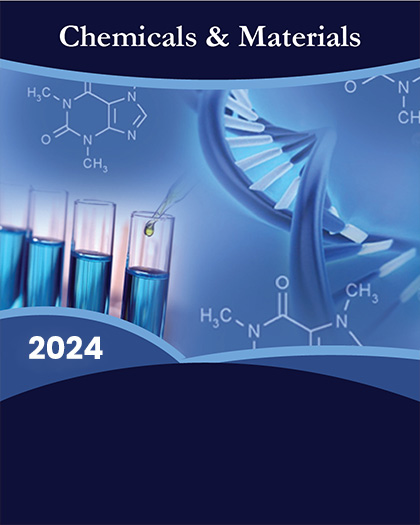Market Overview
The Philippines industrial wastewater treatment market is expected to witness significant growth from 2025 to 2033, driven by increasing industrialization, stricter environmental regulations, and the growing need for sustainable water management solutions. In 2026, the market is projected to generate approximately $46.5 million in revenue, reflecting the country's ongoing industrial expansion and environmental sustainability initiatives.
With rising concerns about water pollution, industrial discharge management, and water reuse, businesses across various industries are investing in advanced wastewater treatment technologies to meet compliance requirements and contribute to environmental conservation efforts.
Key Growth Drivers
Industrial Expansion and Urbanization
- The growth of industries such as food and beverage processing, chemicals, pharmaceuticals, and electronics has resulted in higher wastewater generation.
- Rapid urbanization and the expansion of industrial zones have increased demand for efficient wastewater treatment infrastructure.
Stringent Environmental Regulations
- The Philippine government has introduced strict environmental laws and discharge standards to regulate industrial wastewater management.
- Industries are mandated to install effluent treatment plants (ETPs) and adhere to national environmental guidelines to avoid fines and penalties.
Adoption of Advanced Wastewater Treatment Technologies
- Membrane bioreactors (MBRs), advanced oxidation processes (AOPs), and electrocoagulation systems are becoming increasingly popular for industrial effluent treatment.
- Smart monitoring systems using IoT and AI-powered analytics are improving treatment efficiency and regulatory compliance.
Growing Public Awareness and Sustainability Initiatives
- Concerns over water scarcity and pollution are driving industries toward recycling and reusing treated wastewater.
- Companies are investing in sustainable water management solutions to enhance corporate social responsibility (CSR) and align with global environmental trends.
5. Investment in Public-Private Partnerships (PPPs)
- Government-backed public-private partnerships are driving investments in wastewater treatment infrastructure.
- The collaboration between industrial players and wastewater treatment firms is facilitating the construction of centralized treatment facilities.
Challenges in the Philippines Industrial Wastewater Treatment Market
High Capital Investment Costs
- The installation of advanced treatment facilities requires significant financial resources, posing challenges for small and medium-sized enterprises (SMEs).
- High operational and maintenance costs limit the adoption of cutting-edge wastewater treatment technologies.
Limited Skilled Workforce and Technical Expertise
- The lack of skilled professionals trained in industrial wastewater treatment operations affects efficiency and compliance.
- Companies need to invest in workforce training and upskilling programs to enhance expertise in wastewater management.
Inconsistent Infrastructure and Regulatory Enforcement
- Some industrial zones lack proper sewage and wastewater treatment infrastructure, leading to improper disposal practices.
- Regulatory enforcement varies across regions, creating challenges in uniform compliance and monitoring.
Future Outlook (2025-2033)
The Philippines industrial wastewater treatment market is expected to undergo major advancements over the next decade due to:
- Increased Investments in Industrial Water Treatment Plants
- Expansion of wastewater recycling and reuse plants across key industrial zones.
- Greater focus on zero liquid discharge (ZLD) technologies to minimize industrial water wastage.
- Integration of Smart and Automated Water Treatment Solutions
- Adoption of real-time monitoring systems for regulatory compliance.
- Use of AI and big data analytics for optimizing wastewater treatment efficiency.
- Growth in Circular Water Economy and Sustainable Wastewater Management
- Industries shifting toward water reuse and resource recovery models.
- Enhanced focus on biogas generation from industrial sludge as part of sustainable operations.
- Regulatory Enhancements and Stricter Compliance Measures
- Implementation of more rigorous environmental guidelines for industrial wastewater disposal.
- Government incentives for industries investing in eco-friendly wastewater treatment systems.
Market Segmentation
By Region:
By Industry:
- Food and Beverage
- Paper and Pulp
- Chemical and Pharmaceutical
- Semiconductor and Electronics
By Treatment Method:
- Physical Treatment
- Biological Treatment
- Chemical Treatment
- Advanced Treatment
By Contract Type:
- Engineering, Procurement, and Construction (EPC)
- Operations and Maintenance (O&M)
Competitive Landscape
The Philippines industrial wastewater treatment market is dominated by local and international players providing comprehensive treatment solutions:
- Eco-System Technologies, Inc. – A leading provider of industrial wastewater treatment solutions.
- Subic Water and Sewerage Company – Specializing in large-scale wastewater treatment projects.
- VA Tech Wabag Philippines – Offering advanced water and wastewater management solutions.
- KSB Philippines, Inc. – Providing high-performance pumps and treatment systems.
- Manila Water Company, Inc. – Managing wastewater treatment infrastructure for industrial and municipal applications.
Conclusion
The Philippines industrial wastewater treatment market is set to experience steady growth from 2025 to 2033, fueled by:
- Industrial expansion and increased wastewater generation.
- Stronger regulatory policies enforcing environmental compliance.
- Adoption of advanced treatment technologies and automation.
- Greater investments in sustainability and water recycling initiatives.
























